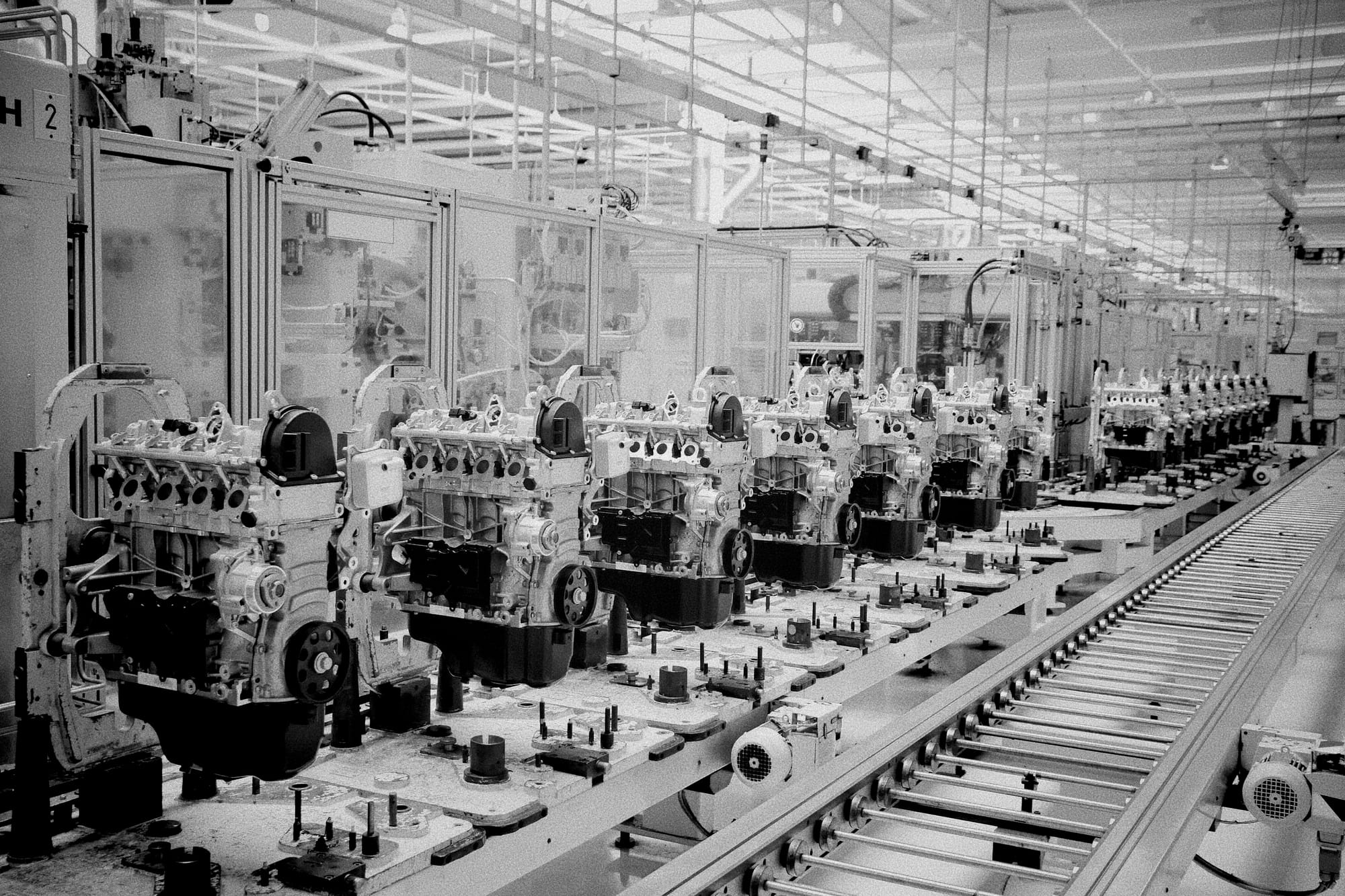
According to Nietzsche, European culture has been subject to a "leveling" process.
Most of what we call good today—Democracy, Peace, Happiness—these are just so many signs of illness and fatigue.
Without quite realizing it, we've come to celebrate weakness, sickness, and a general, homogenous mediocrity as the highest form of life.
Given our technological interpretation of the "City on a Hill," we continue to be struck by metaphors of height or protrusion, sight, and visibility in Nietzsche's model. For instance, read closely his teaching in the Genealogy of Morals:
"How much one is able to endure: distress, want, bad weather, sickness, toil, solitude. Fundamentally one can cope with everything else, born as one is to a subterranean life of struggle; one emerges again and again into the light, one experiences again and again one's golden hour of victory—and then one stands forth as one was born, unbreakable, tensed, ready for new, even harder, remoter things, like a bow that distress only serves to draw tauter.
But grant me from time to time—if there are divine goddesses in the realm beyond good and evil—grant me the sight, but one glance of something perfect, wholly achieved, happy, mighty, triumphant, something still capable of arousing fear! Of a man who justifies man, of a complementary and redeeming lucky hit on the part of man for the sake of which one may still believe in man!
For this is how things are: the diminution and leveling of European man constitutes our greatest danger, for the sight of him makes us weary. We can see nothing today that wants to grow greater, we suspect that things will continue to go down, down, to become thinner, more good-natured, more prudent, more comfortable, more mediocre, more indifferent..." (Emphases ours.)
If technology is asymmetry, as we've written before (1, 2, 3)—if every technological innovation can be understood as an elevation or protrusion, a visible ascent of something above the flatline—then technology is always also the possibility of an escape from leveling.
At the same time, we observe a constant, seemingly global process where technological innovations are usually, quickly subsumed by the leveling process. Global institutional capitalism or what is called "Globalism" seems to always recuperate technological innovations into its web of homogenizing mediocrity.
All of this raises the crucial question: What are the conditions under which a new technology escapes the leveling process, without being recuperated by it?
We find a promising suggestion further along in Nietzsche's diagnosis.
In section 14 of the First Essay, he investigates "how ideals are made on earth," to illuminate the "workshop where ideals are manufactured." You may recall our Immanence Machines, where we explain through Nick Land how Proof-of-Work blockchains "machine value into existence."
The essence of Nietzsche's critique is that mediocrity is elevated through a process of "counterfeiting." Various forms of weakness and illness are merely redescribed positively, propelled by hatred for the strong and a lust for revenge against the strong. Impotence is called goodness of heart, anxiety is called humility, cowardice is called forgiveness, and so on.
Reading between the lines (and benefitting from an extra 150 years of observation), we can see with even more clarity how this "counterfeiting" works.
- There is always majority support for the promotion of mediocrity (averageness) because, mathematically, most people are mediocre.
- Social values are ultimately underwritten by financial systems, which provide the unit of account through which social capital is convertible to cash.
- Insofar as a financial system is governed by people, a financial system will tend toward corruption and "counterfeiting" for the same reasons that social values tend to be counterfeited.
- Thus, the elevation of mediocrity through counterfeit values will always be underwritten by a socially compromised financial system, as counterfeit money is naturally, automatically, deployed to extend the runway of corrupted values.
Suddenly, the theory we present in Immanence Machines takes on new meaning.
A new technology escapes the leveling process to the degree it can generate a new underlying standard, which can be maintained autonomously, which is to say, non-socially.
Most of the great technology platforms of recent years—Facebook, Google, etc.—never achieve escape velocity (and redound to Globalism) because they were built into the flow of corrupted social values underwritten by corrupted social finance.
In contrast, a Proof-of-Work system like Bitcoin resets the true price of socially corrupted financial instruments, through a novel system that is objectively more reliable, exacting, and immune to naive democracy. As a result of this innovation, it progressively absorbs corrupted financial signifiers instead of being absorbed by them. It cannot be otherwise, insofar as exceptional value will always flock to the standard that assigns value least corruptibly.
Now imagine what will happen when a Proof-of-Work system resets the true price of computational processes and media signifiers.
